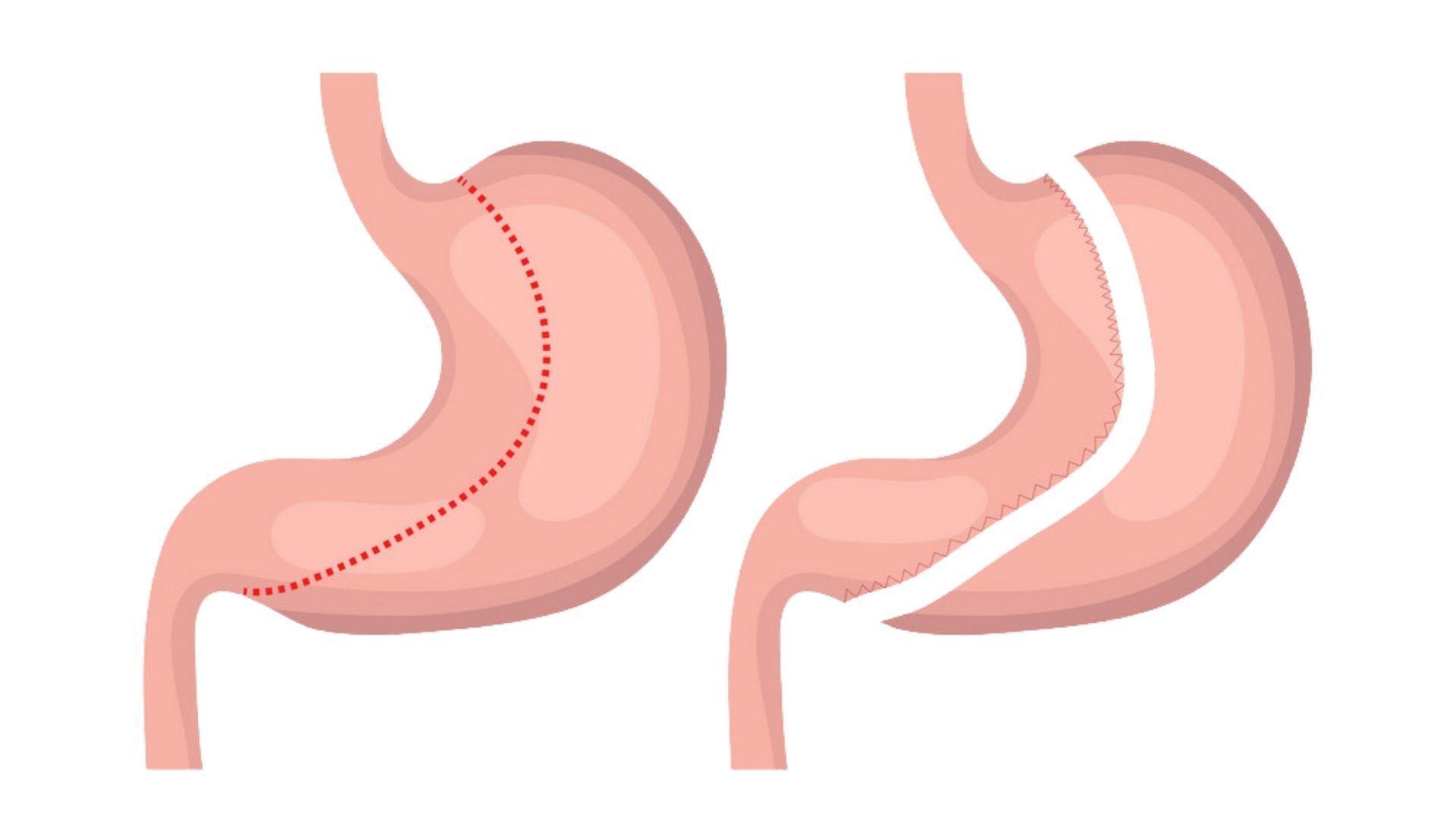
Gastric Sleeve Recovery Time: What Is the Timeline?
Patients considering bariatric surgery often want to know about gastric sleeve healing time and how long it takes to feel normal again. Recovery varies from person to person, but there are clear phases that guide expectations. Understanding the gastric sleeve recovery timeline can help patients prepare for each stage, from surgery day to long-term lifestyle adjustments.
What to Expect on the Day of Surgery
The gastric sleeve procedure itself usually takes about one to two hours. Afterward, patients spend time in a recovery room where vital signs are monitored. Pain and nausea are common but managed with medication. For many, walking a few steps the same day is encouraged to improve circulation and prevent blood clots. The gastric sleeve healing time begins immediately, with careful attention to rest and hydration supported by guidance on staying properly hydrated after your gastric sleeve surgery.
Gastric Sleeve Recovery Day by Day: The First Week
The first week is critical, and patients often ask how long does it take to heal from gastric sleeve in the short term. In the hospital, clear liquids are introduced. By the time patients go home, usually within two to three days, the focus is on rest, hydration, and short walks.
- Days 1–2: Clear liquids only. Pain management and light movement.
- Days 3–5: Gradual increase in fluid intake and better tolerance of movement.
- Days 5–7: Continued healing at home. Patients monitor incision sites and stay hydrated.
By the end of the first week, most patients are mobile but still require plenty of rest. Early recovery is also an ideal time to understand what foods can you not eat after gastric sleeve surgery to avoid irritation and protect the healing stomach.
Two to Three Weeks After Surgery

Many patients want to know how long does it take to recover from gastric sleeve beyond the first week. During weeks two and three, pureed foods are introduced, and energy levels start to rise. Fatigue is still common, but walking longer distances helps with strength and digestion. Work may be possible for patients with less physically demanding jobs, although it depends on individual progress. Adding nutrient-dense meals to a diet after gastric sleeve surgery supports this stage of healing.
Weeks Four to Six: Building Habits
By this stage, soft foods are added, and patients begin to feel more normal. The question what is the recovery time for gastric sleeve is often answered here, about one month for basic healing, though full recovery takes longer.
Light exercise, like walking or stretching, is encouraged, but heavy lifting should be avoided. Patients attend follow-up appointments to check incisions, weight loss progress, and nutritional status. Emotional adjustment is also important, as the new eating habits require discipline and patience. Comfort during this period is improved by following essential tips for reducing gas after gastric sleeve surgery to minimize bloating and abdominal pressure.
One to Three Months After Surgery
During this phase, patients typically notice significant weight loss, which motivates them to continue following dietary guidelines. Many ask how long does it take to recover from gastric sleeve surgery fully, but the reality is that recovery continues over several months.
Solid foods are reintroduced slowly. Patients learn which foods cause discomfort and which support digestion. Temporary side effects such as fatigue, hair loss, or changes in bowel habits may occur, but they usually improve with proper nutrition and supplementation. Exploring balanced meal ideas, like pasta after a gastric sleeve for post-op nutrition, helps with variety without sacrificing digestion.
Six Months After Gastric Sleeve Surgery
By six months, most patients have adapted to their new lifestyle. The stomach has healed substantially, and dietary variety expands. The question how long does it take for gastric sleeve to heal is largely answered here, major healing occurs by six months, though adjustments continue.
Exercise routines are more consistent, and energy levels are much higher compared to the early weeks. Patients are also encouraged to attend support groups or counseling sessions to reinforce healthy habits. Monitoring carbohydrate intake with resources like how many carbs after gastric sleeve are okay supports ongoing weight loss and energy stability.
One Year After Surgery and Beyond
At one year, the majority of the gastric sleeve recovery timeline is complete. Patients have lost a significant amount of excess weight and established new routines. This stage highlights that gastric sleeve healing time extends well beyond the hospital stay, it involves physical, emotional, and nutritional adjustments.
From year one onward, maintenance becomes the focus. Patients must continue monitoring portion sizes, taking supplements, and avoiding old eating habits that could lead to weight regain.
Long-Term Recovery and Lifestyle Commitment

What is the recovery time for the gastric sleeve in the long term? Technically, full healing of the stomach tissue occurs within a few months, but lifelong habits determine success. Patients must commit to:
- Eating protein-rich meals.
- Staying hydrated without drinking during meals.
- Exercising regularly.
- Attending medical checkups.
- Taking vitamins and supplements consistently.
These habits ensure that the benefits of surgery are long-lasting.
Read More: Gastric Bypass & Gastric Sleeve: Recovery Time To Get Back To Work
Wrapping Up
The gastric sleeve recovery timeline varies, but most patients notice major improvements within the first six months. Gastric sleeve healing time begins in the hospital, progresses through weekly diet stages, and stabilizes after one year. With proper guidance, patients achieve significant weight loss and long-term health benefits.
Recovery is smoother with the right support. Ascension Saint Agnes Bariatric Surgery provides Gastric Sleeve Surgery in Maryland with personalized care to guide patients through every phase of gastric sleeve recovery, from surgery day to lifelong maintenance. Their team ensures nutritional balance, safe healing, and sustainable weight loss. Whether you’re seeking bariatric revision surgery, an upper endoscopy, Roux-en-Y gastric bypass, robotic surgery, or a gastric balloon, Ascension Saint Agnes offers a comprehensive approach to weight loss surgery. Contact us today to learn more about how we can support your journey to better health.
Frequently Asked Questions
How long does it take to recover from gastric sleeve surgery fully?
Most patients recover within six to eight weeks for everyday activity, but full adjustment, including digestion, diet, and energy levels, can take six months to one year. Healing continues internally even after you start feeling normal.
When can I return to work after gastric sleeve surgery?
Patients with desk jobs may return in two to three weeks, while those with physically demanding work may need up to six weeks. Always follow your surgeon’s clearance before resuming complete duties.
When can I start eating solid foods after gastric sleeve surgery?
Solid foods are usually reintroduced around week eight, following the liquid, pureed, and soft food phases. Gradual progression prevents irritation and supports healthy digestion.
How soon can I exercise after gastric sleeve surgery?
Light walking begins within days, but more structured exercise should wait four to six weeks post-surgery. Avoid heavy lifting until your surgeon confirms it’s safe.
What helps speed up recovery after gastric sleeve surgery?
Recovery improves with hydration, protein-focused meals, gentle movement, proper rest, and adherence to medical instructions. Avoiding carbonated beverages and practicing mindful eating also promotes healing and comfort.